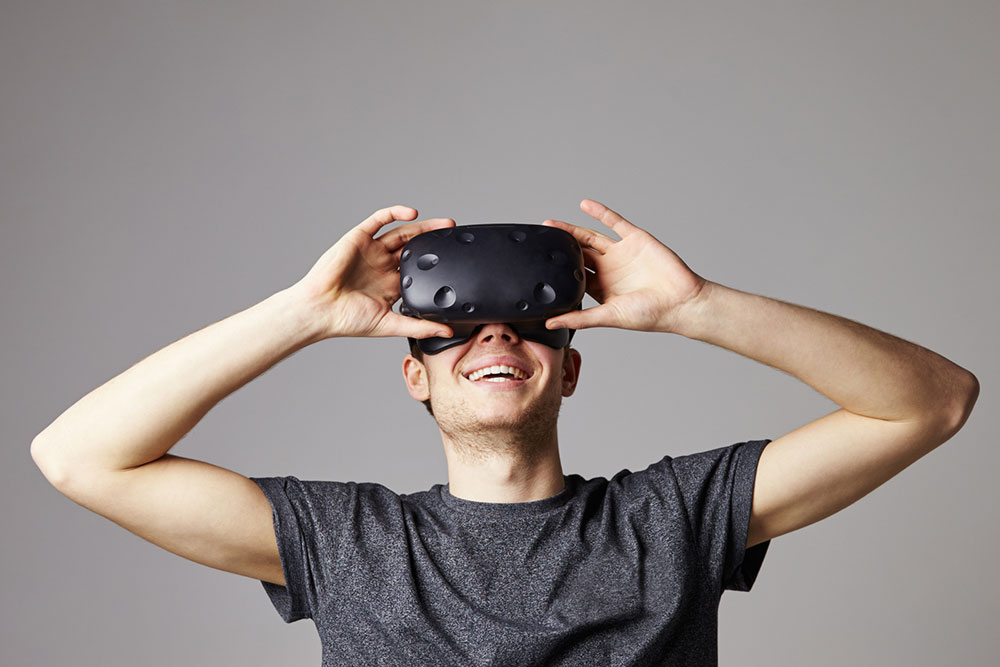8 Apple Vision Pro Features One Cannot Miss

Apple has always been at the forefront of technological innovations. Their latest pursuit of cutting-edge products has resulted in the development of the Apple Vision Pro, a headset that provides an immersive experience. This mixed-reality headset has changed how one interacts with one’s digital content. Here are some of the impressive features of Apple Vision Pro and what one can expect from the upcoming sales season if one wants to try out the headset.
How does Apple Vision Pro headset work?
The Apple Vision Pro headset boasts an impressive display that seamlessly blends augmented reality (AR) and virtual reality (VR) and provides high-resolution visuals of one’s surroundings. The screen placed on the inside of the device displays one’s surroundings, which are captured by sensors on the outside. Upon wearing the Vision Pro headset and activating it, users will have access to their apps displayed on the screen. In terms of functionality, it comes with customizable straps that wrap around the head to block out light. The device also involves numerous elements for proper fitting, such as multiple head straps, various sizes of light seals, and specialized options for those who wear lenses.
Key features to look forward to
Spatial computing
Spatial computing merges the digital and physical worlds to enhance how people interact with computers. Apple Vision Pro uses sensors, cameras, and powerful technology to create an immersive digital experience, making users feel like they’re at the heart of a digitally enhanced environment. This technology goes beyond traditional screen-based interactions, seamlessly blending the real and digital realms.
Display and processing
The device is equipped with 12 cameras, including main and downward cameras, side cameras, LiDAR scanner, illuminators, five sensors, and six microphones. This ensures a remarkable visual quality and boasts a display resolution exceeding 4K per eye. This high level of precision immerses users in a realistic augmented reality, and the device utilizes M2 and R1 processors to deliver efficient and responsive performance for complex augmented reality applications. These ensure a lag-free user experience when interacting with the digital environment.
Portable device
The device offers a portable augmented reality experience. Accompanied by a 2-hour battery attachment, it supports uninterrupted use for users on the move, eliminating the need for frequent recharging.
No additional devices for controls
One of the key features of the Apple Vision Pro headset is that the device does not have any supplementary devices for controlling or commanding one’s augmented reality. One can interact with or use the apps in other ways, including eye tracking, voice commands, and straightforward finger gestures such as tapping, double-tapping, pinching and holding, zooming in and out, and rotating. In addition, when another person walks in while the device is in operation, it has the capability to detect their presence, ensuring that the virtual reality does not block out the real world entirely.
Spatial audio
Within the Apple Vision Pro headset, small speakers are thoughtfully positioned along the sides to direct spatial audio precisely into the user’s ears. This arrangement ensures an immersive and directed audio experience, complementing the device’s AR and VR capabilities.
Intuitive control features
The top portion of the Apple Vision Pro houses a button for controlling specific functions, including the 3D camera. On the right side of the device, the Digital Crown takes charge of managing augmented and virtual reality immersion, providing users with easy and intuitive control over their digital experiences.
EyeSight display
The front glass of the Apple Vision Pro serves as a unique display for a feature known as “EyeSight.” This feature enables outsiders to see the user’s eyes and understand that one is using the apps or is fully immersed.
Privacy and security
In terms of privacy and security, Apple has unveiled Optic ID, an advanced iris-scanning system. Similar to the functionality of Face ID and Touch ID, Optic ID serves as a secure means of user authentication, allowing access to features like Apple Pay purchases and reinforcing overall device security.
Sale of the Apple Vision Pro headset
The anticipated VR headset, with a price tag of $3,499, is currently in the final stages of development. Although speculations hinted at a secret sale or release of the product by this year-end, the product is set to go on sale in the early months of the upcoming year. Apple Vision Pro has generated significant interest in the tech community due to its advanced features and is poised to offer a transformative experience to users seeking immersive virtual reality experiences. Additionally, Apple has also been working on a more affordable model, aiming to introduce this innovative product category to a wider audience in the coming two years.